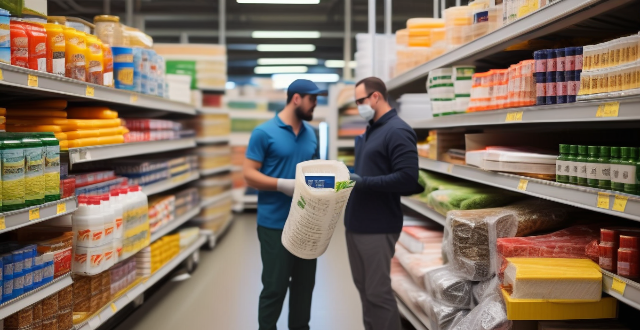Consumers can ensure they are buying safe and high-quality imported foods by checking labeling and packaging, researching the manufacturer's reputation, understanding import regulations, being wary of counterfeit products, and seeking professional advice when uncertain.

How Can Consumers Ensure They Are Buying Safe and High-Quality Imported Foods?
As global trade continues to expand, consumers have access to a wider variety of imported foods. However, ensuring the safety and quality of these products can be challenging. Here are some tips to help you make informed choices when purchasing imported foods:
Check the Labeling and Packaging
- Country of Origin: Look for information about where the food was produced. This can give you an idea of the regulatory standards it must meet.
- Manufacturer Contact Details: A reputable manufacturer will provide clear contact information on the packaging.
- Best Before/Expiration Dates: Ensure that the product has not expired or is close to its expiration date.
- Ingredients List: Check for any allergens or ingredients you may want to avoid.
Research the Manufacturer's Reputation
- Online Reviews: Look for reviews from other consumers who have purchased the product.
- Third-Party Certifications: Some manufacturers may have certifications from organizations like USDA Organic, Fair Trade, or Non-GMO Project.
- Regulatory Compliance: Check if the manufacturer adheres to regulations such as HACCP (Hazard Analysis and Critical Control Points) or ISO 22000.
Understand Import Regulations
- Import Regulations by Country: Different countries have varying regulations regarding what can be imported. Knowing these regulations can help ensure that the food meets certain safety standards.
- Customs Inspections: In some cases, imported foods are subject to inspection by customs officials to check for contaminants and compliance with local laws.
Be Wary of Counterfeit Products
- Authenticity Features: Look for features like holograms, unique serial numbers, or security labels that indicate authenticity.
- Price Comparison: If a deal seems too good to be true, it might be a counterfeit product. Be cautious of prices that are significantly lower than average market rates.
Seek Professional Advice When Uncertain
- Consult with a Nutritionist or Dietitian: If you have specific dietary needs or concerns, consulting with a professional can provide guidance on safe and high-quality imported food options.
- Contact Local Health Authorities: If you have concerns about the safety of a particular imported food product, contact your local health authorities for advice.
In conclusion, being an informed consumer is key to ensuring you are buying safe and high-quality imported foods. By following these tips, you can make more confident decisions about the food you bring into your home.